#princeton theological seminary
Explore tagged Tumblr posts
Text
"The vacation in the College, Seminary and schools occurring at this time, detracts from the hilarity of the season."
--Princeton Press, January 4, 1873
#1870s#holidays#vacation#holiday break#town of Princeton#Princeton#Princeton Theological Seminary#quote#Princetonquote#On This Day
2 notes
·
View notes
Text
Christian Evidences: How Affected by Recent Criticisms - B. B. Warfield
▶️Dear Brethren, I am now on Twitter https://twitter.com/RichMoo50267219 If you are as well, please consider following me there. ▶️B. B. Warfield playlist: https://www.youtube.com/playlist?list=PLFD0C7CA1B7D52171 Christian Evidences: How Affected by Recent Criticisms – B. B. Warfield ▶️SUBSCRIBE: https://www.youtube.com/user/stack45ny▶️After subscribing, click on NOTIFICATION BELL to be…

View On WordPress
#Christian#Christianity#Christians#God#Jesus Christ#Presbyterian#presbyterian authors#presbyterian books#presbyterian church#Presbyterian minister#Presbyterianism#princeton#Princeton Seminary#princeton theological#princeton theology#reformed presbyterian
0 notes
Text
NYPD broke down hotel room door at Park Terrace Hotel in NYC. Black woman, Ella Gorgla who is a Columbia graduate, forced to go to Bellevue Psychiatric Hospital where she was held for SEVEN DAYS.

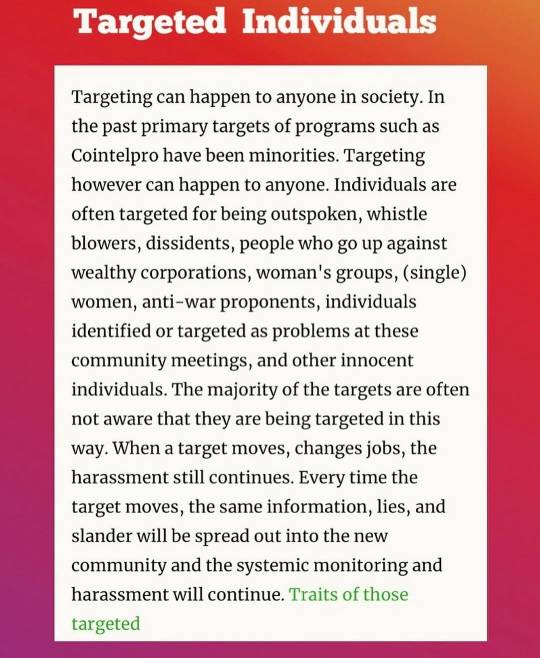
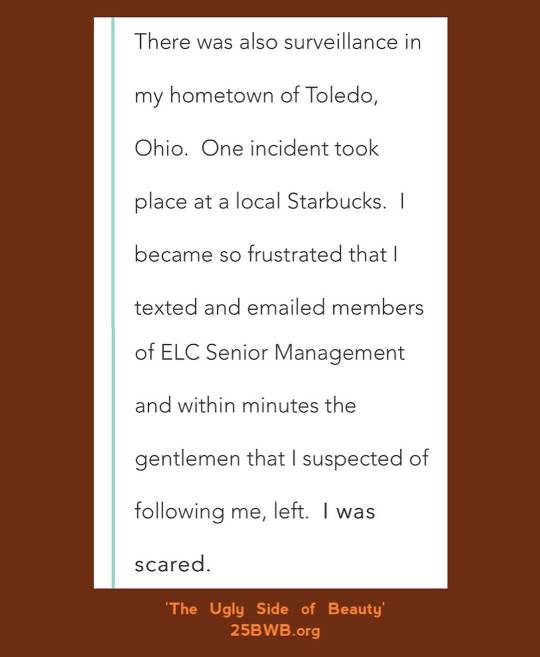
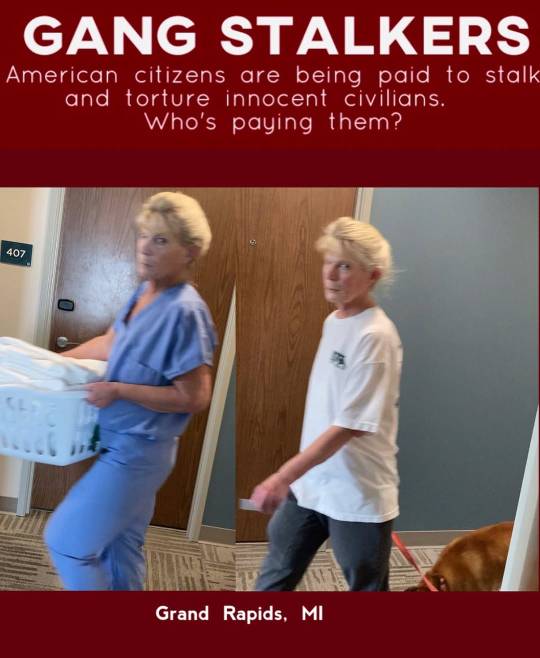
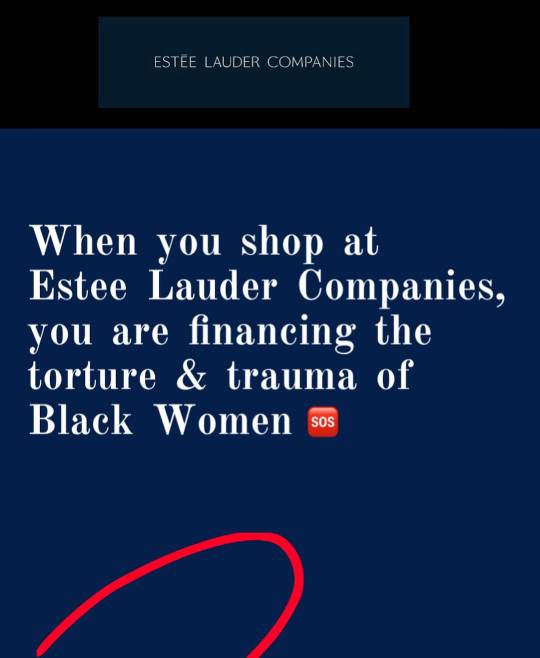

The Estée Lauder @esteelaudercompanies whistleblower 🛎 who called out racial animus, discrimination, illegal surveillance and other improprieties at the company has been harassed for years and the police REFUSE to take a police report. @nypd 👮♀️
Lawyers REFUSE to take on her case. @attorneycrump @leemerrittesq 🧑🏾
Traditional media outlets REFUSE to cover her story. @nbcnews @blackenterprise 🗣
.
What is really going on??
.
Ella was preparing to attend Princeton Theological Seminary when her harassment began. She was running a very successful organization, 25BWB.org.
.
🗣 When you shop at Estée Lauder Companies you are
FINANCING the TRAUMA of BLACK WOMEN 🚨
.
@lala iamnialong @oliviaamcdowell @uchjn
.
🗣 SHARE this story. It could be any of us. 🆘
Don't Ignore
#5150#corruption#nyc#nycquarantine#blackwomen#bellevue#black people#black women#racial injustice#estee lauder#black lives matter#blacklivesmatter#racism#racist#anti blackness#natural hair#makeup#companies#black woman#protect black women#say her name#beauty products#black men#black liberation#black pride#black history#black health#black hair#africa#african
18 notes
·
View notes
Text
"Our actions on Monday were informed and inspired by generations of brave student activists, such as those who rallied for divestment from apartheid South Africa in the 70s and 80s, the Black Justice League students who staged a sit-in in 2015, as well as the growing Palestinian solidarity movement currently sweeping the country. We stand with our resilient comrades at Columbia, the New School, UCLA, Brown, Rutgers, the University of Michigan, UT Austin, and elsewhere. We have learned from these movements, and we will not be deterred. We condemn the mass arrests and brutalization of Columbia, UCLA, and CCNY student protestors by militarized police forces.
Our university conveniently platforms its history of activism while criminalizing activists on campus today. As of Tuesday morning, Morrison Hall, home of our African American Studies Department—established after the 2015 Black Justice League sit-in in Nassau Hall—has been entirely locked down and remains inaccessible to students. Morrison Hall is also the site of the Effron Center, which houses Latino Studies, Indigenous Studies, and Asian American Studies. We are deeply concerned about the disproportionate disciplining of students of color. We call upon students and faculty at Princeton University and Princeton Theological Seminary, as well as the greater community at Princeton and across the country, to join us in our struggle for peace, equality, and liberation for Palestine."
-Statement from Clio Hall Sit-In Participants
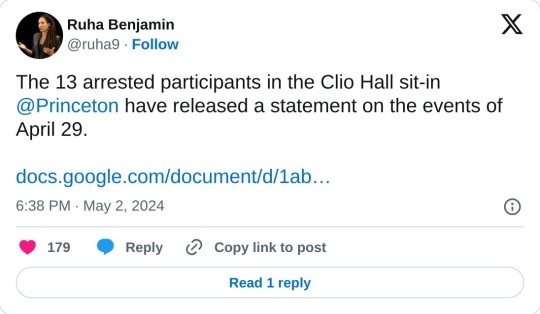
#student activism#student protests#ruha benjamin#princeton university#palestine#free palestine#isreal#genocide#gaza#apartheid#colonization#american imperialism#us politics#police state
18 notes
·
View notes
Quote
The wealthy industrialists in the 1930s and 1940s poured money and resources into the church, including seminaries such as Princeton Theological, to crush the Social Gospel, led by Christian radicals and socialists. They funded a brand of Christianity — which today is dominant — that conflates faith with free enterprise and American exceptionalism. The church has gone down the rabbit hole of a narcissistic how-is-it-with-me form of spirituality. The rich are rich, this creed goes, not because they are greedy or privileged, not because they use their power to exploit others, but because they are brilliant and gifted leaders, worthy of being lionized, like Bill Gates or Jamie Dimon, as oracles. This belief is not only delusional, but Christian heresy. The word heresy comes from the Greek verb hireo, which means to grasp or to seize – to seize for yourself at someone else’s expense. You don’t need to spend three years at Harvard Divinity School as I did, to figure out Jesus did not come to make us rich.
Chris Hedges
47 notes
·
View notes
Text

Rev. Dr. Michael Eric Dyson (October 23, 1958) is an academic, author, ordained minister, and radio host. He is a professor in the College of Arts and Science and the Divinity School at Vanderbilt University. He has authored or edited more than twenty books dealing with subjects such as Malcolm X, Martin Luther King Jr., Marvin Gaye, Barack Obama, Nas’s debut album Illmatic, Bill Cosby, Tupac Shakur, and Hurricane Katrina.
He was born in Detroit, the son of Addie Mae Leonard. He was adopted by his stepfather, Everett Dyson. He became an ordained Baptist minister at nineteen. Having worked in factories in Detroit to support his family, he entered Knoxville College. He received his BA, magna cum laude, from Carson–Newman College. He received a Ph.D. in Religion from Princeton University after completing a doctoral dissertation titled Uses of Heroes: Celebration and Criticism in the Interpretation of Malcolm X and Martin Luther King, Jr.
He taught at Chicago Theological Seminary, Brown University, Georgetown University, UNC Chapel Hill, Columbia University, DePaul University, Middlebury College, and the University of Pennsylvania.
His book Making Malcolm: The Myth and Meaning of Malcolm X became a New York Times notable book of the year. In his book Come Hell or High Water: Hurricane Katrina and the Color of Disaster, he analyzes the political and social events in the wake of the catastrophe against the backdrop of an overall “failure in race and class relations”. He edited Born to Use Mics: Reading Nas’s Illmatic. His essay in this anthology, “One Love,’ Two Brothers, Three Verses”, argues that the current US penal system disfavors young African American males more than any other segment of the population. His last three books appeared repeatedly on the New York Times Bestseller list.
He hosted a radio show, which aired on Radio One. He is a commentator on National Public Radio, MSNBC, and CNN, and is a regular guest on Real Time with Bill Maher. He became a political analyst for MSNBC.
He served on the board of directors of the Common Ground Foundation. He hosted a television show, The Raw Word. #africanhistory365 #africanexcellence
2 notes
·
View notes
Text


1/2 daguerreotype
princeton theological seminary class of 1848
5 notes
·
View notes
Text
A greater share of young adults say they believe in a higher power or God.
About one-third of 18-to-25-year-olds say they believe—more than doubt—the existence of a higher power, up from about one-quarter in 2021, according to a recent survey of young adults. The findings, based on December polling, are part of an annual report on the state of religion and youth from the Springtide Research Institute, a nonpartisan nonprofit.
Young adults, theologians and church leaders attribute the increase in part to the need for people to believe in something beyond themselves after three years of loss.
For many young people, the pandemic was the first crisis they faced. It affected everyone to some degree, from the loss of family and friends to uncertainty about jobs and daily life. In many ways, it aged young Americans and they are now turning to the same comfort previous generations have turned to during tragedies for healing and comfort.
Believing in God “gives you a reason for living and some hope,” says Becca Bell, an 18-year-old college student from Peosta, Iowa.
Ms. Bell, like many in her age group, doesn’t attend Mass regularly as she did as a child because of studies and work. But she explores her faith by following certain people on social media, including one young woman who talks openly about her own life and belief, which Ms. Bell, who was raised Catholic, says she finds more meaningful and relevant.
The Springtide survey uses the term “higher power,” which can include God but isn’t limited to a Christian concept or specific religion, to capture the spectrum of believers. Many young adults say they don’t necessarily believe in a God depicted in images they remember from childhood or described in biblical passages, but do believe there is a higher benevolent deity.
Other polls, including Gallup, ask specifically about believing in God and show a decline in young adults who believe in God.
The Rev. Darryl Roberts, pastor of the Nineteenth Street Baptist Church in Washington, D.C., says the pandemic, racial unrest, fears of job loss and other economic worries, stripped away the protective layers that many young people felt surrounded them. No longer feeling invincible, he says, some are turning to God for protection.
“We are seeing an openness to transcendence among young people that we haven’t seen for some time,” says Abigail Visco Rusert, associate dean at Princeton Theological Seminary and an ordained pastor in the Presbyterian Church.
At the same time many young adults say they feel disconnected from organized religion over issues like racial justice, gender equity and immigration rights. And belief in God or a higher power doesn’t necessarily translate into church attendance or religious affiliation.
A Wall Street Journal-NORC poll published last month found that 31% of younger Americans, ages 18 to 29, said religion was very important to them, which was the lowest percentage of all adult age groups. A Pew Research Center study also released last month found that 20% of 18-to-29-year-olds attend religious services monthly or more, down from 24% in 2019.
Desmond Adel, 27, describes himself as an “agnostic theist,” which is someone who believes in one or more deities but doesn’t know for sure if they exist. He attended church every Sunday as a child, but doesn’t recall “which subset of Christianity” it represented, and quit going as a teen. He says he’s not 100% convinced there is a higher power, but “leans towards” the existence of one that isn’t tied to one denomination.
“I don’t think it’s like any Gods described by major religions,” says Mr. Adel, of Carmel, Ind.
Nicole Guzik, a rabbi at Sinai Temple in Los Angeles, says she’s observed more young adults coming to Friday night services at the synagogue as well as monthly events that might include hikes and yoga in the park.
“I think this demographic has a need to connect socially and spiritually,” she says.
Christian Camacho, 24, was raised in a conservative Catholic household and says he has had doubts about God when his parents were going through a divorce and when he was dealing with depression. “How could God allow something like this to happen?” he would ask.
Over the years, his image and perception of God has changed, from a judgmental punitive God of his childhood to a more accepting one. He thinks this belief is common among his generation, who don’t associate God with a specific organized religion.
“A lot of people are turned off by the institutions,” says Mr. Camacho, who lives in Minneapolis and is studying to join a religious order.
Courtney Farthing, 26, who works as a customer-service representative for a call center, attended Baptist and Pentecostal churches growing up and identifies as Christian. Ms. Farthing, who lives in Richmond, Ky., believes in God but says she questioned that belief as a teen.
Now, she says, she chooses to believe.
“If I ever started to doubt, or believe there wasn’t a God, it would send me into a spiral of ‘What ifs,’ things that I would rather not get into.”
Alora Nevers, a 29-year-old stay at home mom of four in Sidney, Mont., has always believed in God. She no longer goes to her Catholic church, where, she says, they talked too much about making donations.
“I would rather praise God the way I do with my family. We pray every night.”
15 notes
·
View notes
Quote
The first responsibility of personalism is to see each other person in his or her full depth. This is astonishingly hard to do. As we go through our busy days it’s normal to want to establish I-It relationships — with the security guard in your building or the office worker down the hall. Life is busy, and sometimes we just need to reduce people to their superficial function. But personalism asks, as much as possible, for I-Thou encounters: that you just don’t regard people as a data point, but as emerging out of the full narrative, and that you try, when you can, to get to know their stories, or at least to realize that everybody is in a struggle you know nothing about. The second responsibility of personalism is self-gifting. Twentieth-century psychologists like Carl Rogers treated people as self-actualizing beings — get in touch with yourself. Descartes tried to separate individual reason from the bonding emotions. Nikolai Berdyaev said that tends to turn people into self-enclosed monads, with no doors or windows. Personalists believe that people are “open wholes.” They find their perfection in communion with other whole persons. The crucial questions in life are not “what” questions — what do I do? They are “who” questions — who do I follow, who do I serve, who do I love? The reason for life, Jacques Maritain wrote, is “self-mastery for the purpose of self-giving.” It’s to give yourself as a gift to people and causes you love and to receive such gifts for others. It is through this love that each person brings unity to his or her fragmented personality. Through this love, people touch the full personhood in others and purify the full personhood in themselves. The third responsibility of personalism is availability: to be open for this kind of giving and friendship. This is a tough one, too; life is busy, and being available for people takes time and intentionality. Margarita Mooney of Princeton Theological Seminary has written that personalism is a middle way between authoritarian collectivism and radical individualism. The former subsumes the individual within the collective. The latter uses the group to serve the interests of the self. Personalism demands that we change the way we structure our institutions. A company that treats people as units to simply maximize shareholder return is showing contempt for its own workers. Schools that treat students as brains on a stick are not preparing them to lead whole lives.
Opinion | Personalism: The Philosophy We Need (Published 2018)
1 note
·
View note
Text

Throwback Thursday: A bird's eye view of Princeton, New Jersey, 1874. What we know as Princeton University (and was then named the College of New Jersey) is toward the middle right, near the train station. Toward the bottom middle left, the buildings that make up the always-separate institution named Princeton Theological Seminary can be seen.
Historical Photograph Collection, Grounds and Buildings Series (AC111), Box MP08, Image No. 198.
#Princeton#1870s#Town of Princeton#Princeton University#College of New Jersey#Princeton Theological Seminary#TBT#Throwback Thursday#PrincetonU
15 notes
·
View notes
Photo

Loraine Boettner: A Man of God
Loraine Boettner (March 7, 1901 – January 3, 1990) was an American theologian, teacher, and author in the Reformed tradition. He is best known for his works on predestination, Roman Catholicism, and Postmillennial eschatology.
Boettner was born in Linden, Missouri. He received a Th.B. (1928) and Th.M. (1929) from Princeton Theological Seminary, and he received the honorary degrees of Doctor of Divinity (1933) and Doctor of Letters (1957). He was a member of theOrthodox Presbyterian Church. For eight years he taught Bible at Pikeville College in Kentucky, and in 1937 he began working at the Library of Congress and the Bureau of Internal Revenue.
While his daily vocation was not theology or Biblical studies, he continued to write and publish books until near his death, the most successful of which were The Reformed Doctrine of Predestination and Roman Catholicism, Boettner’s critical commentary on the Roman Catholic faith. This book has been called by its critics “The Anti-Catholic Bible” because of the author’s aim to antagonize the Catholic Church, which, according to them, “has gravely compromised his intellectual objectivity”. A recent doctoral study claims that the research done by Boettner in Roman Catholicism “is simply flimsy” and makes use of old and refuted anti-Catholic clichés.
The Reformed Doctrine of Predestination and Immortality were translated into Chinese by Charles H. Chao (1952, 1962), into German by Ivo Carobbio, and into Japanese.
Taken from Wikipedia: Loraine Boettner
Biographical sketch
Born: March 7th 1901, Linden Missouri
Father: William; Christian School Superintendant
Mother: Vinn; Homemaker
Mom & Dad had different theological positions; Mom was a Methodist.
In 1917 studied agriculture at the University of Missouri.
Finished his degree from Tarkio Presbyterian College (Cum Laud).
While at Tarkio, Loraine was greatly influenced by professor J.B. Work, who was a staunch Calvinist.
In 1925 Boettner furthered his education while attending Princeton. In 1928 he received his Th.B, and in 1929 his Th.M.
While attending Princeton, Boettner syudied under Casper Hodge.
1932 married Lillian Henry
1932 wrote “Reformed Doctrine of Predestination”.
1937 Boettner taught at Pikesville Presbyterian College
1937 Hired on at the Library of Congress & Internal Revenue Services.
1948 Moved to Los Angeles due to Lillians health; She died in 1958.
1989 Boettner’s health diminished. He later died in Fairfax Hopsital, Montana in the year of 1990.
4 notes
·
View notes
Video
youtube
Dr. Bart Ehrman's Top 3 Favorite New Testament Contradictions
COMMENTARY:
I suppose under the intellectual glass ceiling of the Marxist stylings of Post Modern Historic Deconstruction and the protocols of the Capel Hill Campus Crusade for Apostasy,, these example hold up as contradictions, However, within the encyclopedi horizons of literary criticism, they tell me a distincly different tale. As near as I can tell, the testimony of Peter transcreved by Cornelius in Mark, which is the narrative spine of the Gospel of Mark, begins at Mark 1:29, I am guided by the visual cue of εὐθὺς , which is a Roman apparatus for designating elements of the narrative that were recorded in Quelle . I don''t read Greek, but I do read concordance and the pattern of εὐθὺς acts like a footnote esignation, and means )C>F> Quelle:, So, anywan, the εὐθὺς at the outset of Mark 1:30 is where Cornelius began recoridng Peter's testiomy during their debriefing in Acts 10. So, from a literary point of view, Peter misremembered who was the high Priest of the Shew Bread beecause, as it is noted in Act 4:31, Peter is unschooled and Cornelius was clueless about the scritures, generally, It's a nothing burger and the mistake doesn't change the intent of Jesus's rejoinder one iota. I mean, the significant difference between Mark and Matthew is that Matthew connects all the Theological dots that neither Peter nor Cornelius had any idea existed. I don't have any idea how reading it in Greek alters that fact in the elast, beyound securing your personal claim to a High School Debate champion, The fact that your faith as a Born Again Jesus Freak weaned on the Campus Crusade for Christ solo scriptura indoctrintion began to unravel is a reflection on the fraud of the Salvaion Gospel. If Campus Crusade for Christ was the only means I had of knowing the Father, Son and Holy Spirit, I'd consider Richard Carrier to be pulling his punches. And your Princeton Seminary i tnstructor was about as clueless as you, If you are constrained by Dale Martin's protocols for the critical historic method, you are missing most of the content of the scriptures. I'm not interested in explaining away your "contradictions". I'm interested to see where these anomlies take me into the Hegelian anthropology and sociology of the culture, It down't look much like John Dominic's version of Judea. Now, your "contradiction" is even more absurd. Jesus is getting off a boat when Jarius says his dauther is dying and could He come lay hads on her and save her. Jesus taks off, but is delayed by his healing of the woman with the 12 year heorage., That takes a little while to sort out and, when that crises is solved, Jarius is told that his daughter has died and to not to bother Jesus further. But Jesus takes Peter, John and James, who had been busy securing their boat, to go with Him to the 12 year old girl, Matthew wasn't there. He got his verion secon had somethie after the fact as hearsay evidence. Of course both version can be true: it's an example of Paradox in literature. Matthew was a late comer to Eeam Jesus and was a bit out of the loop. And , in the final analysis, the girl was dead wehn He got there and he revived her and had her walk it off. What is far more interesting to me is the evidence of the superior journalism of Cornlius's military intelligence methods. The 12 year hemorage and the 12 year old girl is an important example of the textual numerology the Holy Spirit empolys to illuminate Jesus's divinity and mehtodology, The doubling of 12 sets off the nature of the power Jesus commanded: this power is associated with the planentary force of Genesis 1:2, the demiruge. Jeus is a wlaking, taliking Arc of the Covenant. And your third example of whether Jesus said staff or no staffs reflects the difference in the life styles of Peter and Mattheew: they both hard what they wanted to hear to suit their own circunstance. Peter was a fisherman and the idea of carrying around a stick on a boat never occurred to him, while Matthew, as a tax collector, did all his work on the land and a staff as a waling stick was a ntural part of his wardrobe, In addition, Matthew, as a tac collector, would have routinely carres a sizable bank and a good staff is a useful deterrant to highway robbery, It is another example of a generally useless detail that has absolutely not effect on the flow of the narraitive, but iillustrates the the trivial purist aspect of textual analysis. My advice is that you join Derek in his remedial reading comprehension program to wean yourself away from the intellectual burden of Dale Martin's critical Historical mehtod and the comic Marxis axiom of Jimmy Tabor that Harmonization is the enemy of the Truth. Otherwise, you will extend your career of academic mal practice and abusiness model.
0 notes
Video
youtube
Francis J. Grimke was born a slave in Charleston, South Carolina on November 4, 1850. After the war he and his older brother, Archibald, went north to Lincoln University. Francis graduated from Lincoln in 1870. After working briefly at Lincoln, Grimke attended Princeton Theological Seminary from which he graduated in 1878. Soon after graduation he became pastor of the Fifteenth Street Presbyterian Church in Washington, D.C., a post he held until 1928. On Christmas Eve, 1918, Rev. Grimke delivered the sermon below summarizing the aims and objectives of the recently ended World War as well …
0 notes
Text
ATMN: Terry J. Stokes-Jesus and the Abolitionists
The Rev. Terry J. Stokes is an anarchist theologian who seeks to foster political and spiritual radicalization through his writing and speaking. He holds degrees from Yale University and Princeton Theological Seminary, and was ordained by Park Avenue Baptist Church. They live on Munsee Lenape land (central NJ) and work with children and youth as a nonprofit director. Their latest book is Jesus…
0 notes
Text

Melissa Victoria Harris-Perry (October 2, 1973) known as Melissa Victoria Harris-Lacewell is a writer, professor, television host, and political commentator with a focus on African American politics. She hosted the Melissa Harris-Perry weekend news and opinion television show on MSNBC (2012-16).
She was born in Seattle and grew up in Chesterfield County, Virginia. Her father was the first dean of African American Affairs at the University of Virginia. Her mother, Diana Gray, worked for non-profit organizations.
She graduated from Wake Forest University with a BA in English and earned a Ph.D. in Political Science from Duke University. She received an honorary doctorate from Meadville Lombard Theological School and is studying toward an M.Div in Theology at Union Theological Seminary of Columbia University.
She joined the political science faculty of the University of Chicago (1999-2006) when she accepted a tenured appointment at Princeton University as an Associate Professor of Political Science and African American Studies. She left Princeton in 2011 for Tulane University, where she was the Founding Director of the Anna Julia Cooper Project, a center for the study of race, gender, and politics in the South.
On July 1, 2014, she returned to Wake Forest as the Maya Angelou Presidential Chair Professor of Politics and International Affairs. She is a regular columnist for the magazine The Nation, the co-host of the magazine’s podcast System Check, and the author of two books (one published under the name Melissa Victoria Harris-Lacewell). On February 18, 2012, she began hosting an MSNBC weekend morning show titled Melissa Harris-Perry.
On April 18, 2016, it was announced that she joined Elle.com as editor-at-large. On July 23, 2021, she was named as interim host of The Takeaway following the departure of the show’s previous host, Tanzina Vega. She was announced as the permanent host and managing editor on October 18, 2021.
She married attorney James Perry (2010). He is the CEO of the Winston-Salem Urban League. She has two children. #africanhistory365 #africanexcellence #deltasigmatheta
2 notes
·
View notes